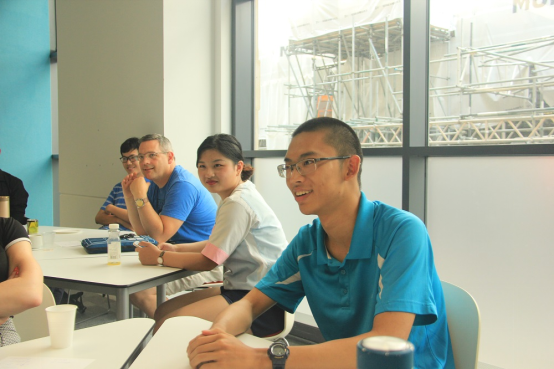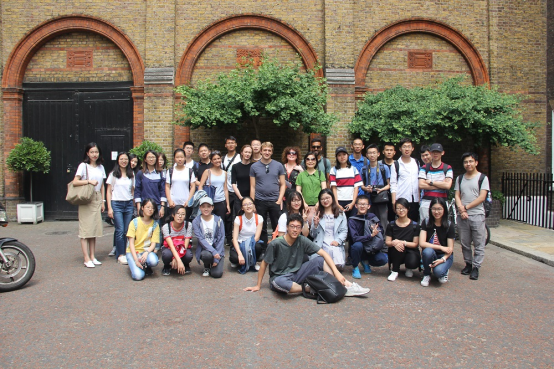Encounter History
Wang Shuyi (Major in Political Science, Economics and Philosophy)
What LSE impressed me most is its campus hidden in a bustling street. Unlike most universities in the world, LSE does not have a clear campus boundary. With London City as its large garden, the buildings are loosely arranged, adjacent to urban political, businessand media centers. Every morning, we crossed the River Thames, passed JPMorgan Chase & Co. and the High Court, and finally saw a serene path through a small door hidden behind antique buildings. Whenever I walked along it, I could not help feeling that the campus spirit of LSE had been unconsciously fused with the spirit of London City.

At LSE, we discussed one core issue every week. The first week was "Should the market be open or regulated?"; the second week was "How to realize global security?" and the third week was "Is Western democracy in crisis?". Selecting the material and the topic was more interesting than the class itself. No doubt we were learning knowledge. More than that, LSE has provided a fertile ground for our development. Market, security, democracy, and other selected topics implied the major global issues from the Western perspective. For me, what the course offered was more than the professional knowledge about these topics. More accurately, the course provided me with an insight into how these topics were viewed. Maybe the content of a teacher's lectures is far from enough to judge Western values. But in this process, we indeed re-examined these topics from an unprecedented perspective, and we indeed thought critically about the perspectives we did not know before. Sometimes, we even saw things from such perspectives. This is the most meaningful thing for me. In the second week, a negotiation was held in the MUN form, and my group got a Belgian script. What amazed me in this negotiation is that Belgium put national interests after humanitarianism and attached more importance to the safety of people in troublous African regions than the safety of their own people in its appeal. At first, I didn't understand at all, but I tried to figure out why Belgium had the appeal culturally and politically. Thus, I gradually approached the truth behind what I once thought absurd.
LSE had various forms of classes, including knowledge-intensive lectures, interactive seminars, skill-oriented workshops, and the most interesting field visits. For example, in the first week, we visited the time-honored diamond street around the theme of "The Life of a Diamond". We learned about the cutting of raw diamonds, the development of diamond evaluation standards, and the selling of diamonds. We observed aswewalked. When we reached a small building withanordinary appearance, the teacher pointed at it and told us, "This is where the diamond evaluation mechanism was born."

In fact, even without those visits in which teachers told me about the meaning behind the city badge, the past and present of the financial center, and the long history of a church, I would also like to wander around the City of London. It was not so big, so every time after class, I wentindifferent directions and roamed in unknown lanes until I became exhausted. It never ceased to surprise me. In the city, the most modern and the most traditional elements are in great harmony. It seems to me that even a new building or a new street lamp may destroy the original balance without elaborate design and siting. If there is a failed, ugly insurance building, every Londoner that passeswould point at it and frown—this is life aesthetics for me.
I visited both the most modern art museums and the traditional museums. I watched enigmatic sculptures, Guerrilla Girls and Andy Warhol at the Tate Modern. I enjoyed the long-awaited sunset of London in front of a French window with my legs crossed on a rush cushion; I also followed my classmates' guidance to "go through a small hole" into the Victoria and Albert Museum from the subway and enjoyed quiet sitting in a hall displaying the huge paintings of Raphael. I love the museums, from their verdant gardens to their splendid glass doors. When I walked out of the museums through the glass doors, calmness welled up in my heart. I never felt a sense of time warp throughout the process. All the elements, either the most modern ones or the most traditional ones, were an integral part of the urban fabric.
As I wandered along the streets of London, I often came across different kinds of signs. They were not road signs but stone tablets that tell you about the past and present of a building and people whocontributedduring the course. It is brilliant that such seemingly "meaningless" contribution is considered memorable so that history is preserved. Meanwhile, people did not enclose history in the name of "protection". Instead, they integrated history into the present and created these scenic spots. Despite this, the "widows" oftheold days managed to find their value beyond scenic spots in the city. Indeed, they were old, butthey were alsoworldly-wise and sophisticated, forming the quality that defines the city. As old-timers, sometimes they accused newcomers of jaywalking, but most of the time, they kindly told them, "Keep learning. Let's grow up together."
My study tour in London coincided with the World Cup, and it seemed that this year's British team performed surprisingly well. My dorm wasn't soundproof and there was right a bar downstairs. A big screen was put up there, in front of which people stood or sat densely and sang unknown songs with bad harmony at midnight. In fact, it was a unique and common sightin Britain. One day, I ate at a Thai restaurant on a bar street intheSOHO district. When I got out at nine o'clock, I found myself standing in a "dance hall". On the street, a well-dressed professor hugged a topless street boy. A group of men walked into the subway, singing,cheering, and clapping hands with people who shared the joy with them. After they got on a subway train, the quiet carriage became crowded and bustling, like a Shanghai subway train in the morning.
I liked visiting Borough Market. At the ancient and upscale market that is said to be the earliest global trade market in London, you can buy anything from all over the world. There were hundreds of varieties of olive oil arrayed in wooden cabinets, dozens of types of tea with a strong herbal scent, as well as cheese, beef, and spices. As we saw more, we gradually got used to "having openclasses"—listening to those friendly shopkeepers explaining the differences between those things that looked the same. It was a "night market" open during the day of Britain. But like most British shops, it was closed very early. I liked to listen to a white-bearded old man introducing the origin of each kind of oyster, which is sweet, which is sweet and salty, which is creamy, or whatever. We bought fruit and vegetable juice with strange ingredients. We passed Indian restaurants, Thai restaurants, and German restaurants. We bought a Scotch egg, anda bottle of Greek honey in a crowdedsmallshop that seemed to have themagic of Ollivanders Wand Shop.
From those details of daily life, I always felt the invisible tradition that informs every aspect of the urban fabric. Here, there was a university that does not need a campus, a group of strangers that can hug each other because of football, and a market co-built by the world and history. Here, I was curious about history. As I encountered it and waved at it, the future would waveback.